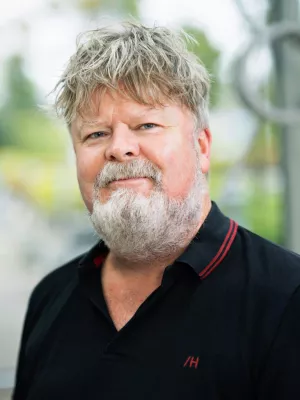
Johan Hultman
Professor

From 'a farewell to landfill' to 'waste as resource'
Author
Summary, in English
But is sustainability really so simple? Can there be another side to the story of how Sweden has developed a successful combined policy of incineration, recycling and biological treatments? Could Sweden’s pleasant farewell to landfills be a tale that conceals unpleasant
things?
A critical reading of Sweden’s farewell to landfills in the light of ecosophy (Næss, 1989) and the European Waste Directive (European Union, 2008) shows that it is a tale that silences and neutralises alternative views and corporate strategies on waste and sustainability. For example, it is a tale silencing that incineration is a method rejected in many countries, and that not everybody considers energy recovery to be a form of recycling. Moreover, it is a
fundamentally anthropocentric tale but that paradoxically ignores the economic and behavioural dynamic that let humans produce waste in the first place. And, it is a tale that labels waste as a resource which is a label that fits better with waste growth than with waste
minimisation, despite the fact that the latter is definitely more sustainable than the former. A convincing story of an undeniable success, A farewell to landfills is a feel good story. But
feel good stories are conservative stories that invite us to dig us deeper in the cushions of our sofas. The question is whether digging us deeper into the cushion of petty recycling practices
can actually stand for a sustainable way of producing and consuming.
Department/s
- Department of Service Studies
Publishing year
2011
Language
English
Full text
Document type
Conference paper
Topic
- Social Sciences Interdisciplinary
Conference name
4th International Conference on Rhetoric and narrative in management research
Conference date
2011-03-24 - 2011-03-26
Conference place
Barcelona, Spain
Status
Unpublished

